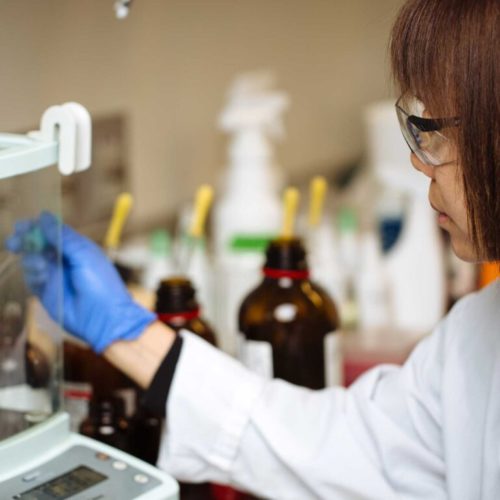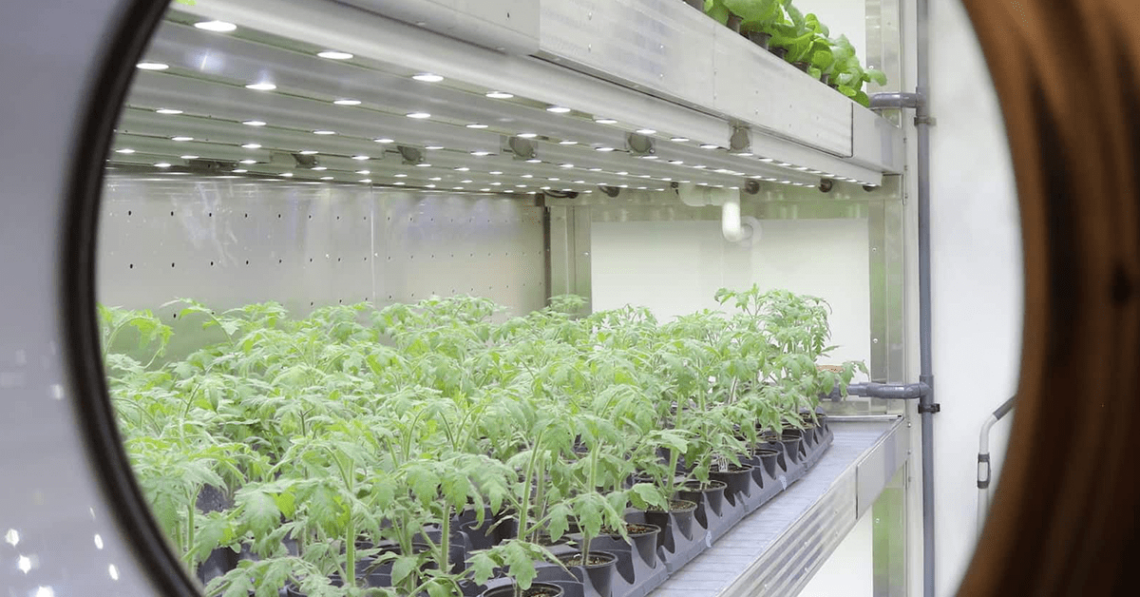Terramera knows a lot about growth, and not just because it develops technology that improves crop yields.
Since founding in 2010, the Vancouver-based company has raised more than $100 million from investors, which has helped Terramera grow to more than 135 employees— and counting— while developing its Actigate™ targeted performance technology, aimed at reducing global synthetic pesticide loads by 80 per cent and increasing global farm productivity by 20 per cent by 2030.
Joining forces with Canada’s Digital Technology Supercluster was “an acknowledgment of the great work that B.C. businesses are doing in the digital tech sector,” says Dr. Steve Slater, Terramera’s Vice President of Strategic Initiatives. “It is an opportunity to advance our sustainable agriculture technologies to be truly transformational.”

A state of the art indoor plant lab located at Terramera’s research facility in Vancouver BC.
The Digital Technology Supercluster funding has also allowed the company to pursue genomics technology “much earlier than would have been possible otherwise, and in a more thorough way,” Slater says.
“Through genomics, we are working to combat leaf rust, a devastating fungal disease that attacks small grains such as wheat, a crop that Canada exports in vast quantities.”
The collaboration fueled by the Digital Technology Supercluster is already paying off. As Terramera launches its own Digital Technology Supercluster project, which will apply computational chemistry to fungicide development, it is working with new tech sector and academic partners.
“The Digital Technology Supercluster has been instrumental in helping us identify and form these new partnerships, which in turn have allowed us to expand the scope of our work,” Slater says.
“The Digital Technology Supercluster doesn’t just provide funding, it also creates community and opportunities for us to connect,” explains Slater. At the time, Terramera was working to reduce the capital and operational costs of data storage as part of its computational biochemistry work. The collaboration led Terramera to discover Compression.ai’s innovative application of artificial intelligence, resulting in a likely savings of hundreds of thousands of dollars over the next several years.

Academic partners have been similarly beneficial, as Terramera builds on B.C.’s research excellence in data analytics and genomics. “On this project we have people from Simon Fraser University, Agriculture and Agri-Foods Canada, Sightline Innovation and the Genome Sciences Centre at the BC Cancer Agency,” Slater says, adding that Genome BC is funding much of the project’s DNA and RNA sequencing. “By working with these partners, we can access the expertise and technologies well-developed in other sectors and apply them to the problems we face in agriculture.”
Over the past two years, Terramera has nearly doubled its workforce, and Slater says he expects the company will hire 30 more employees in 2020. “Through the Digital Technology Supercluster, we have access to top talent, great ideas and world-class facilities. And because we’re setting up a new project, we can carefully choose the people we work with to make sure we are accessing talent that is complementary to what we already have in-house.”
Terramera is also involved in the Predicting New COVID-19 Virus Strains project, collaborating to predict COVID-19 virus variations before they emerge.
